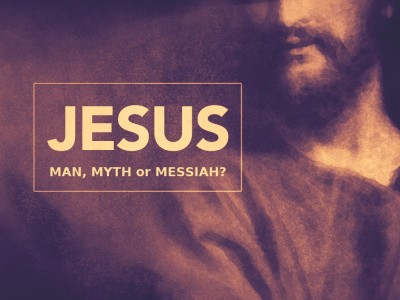
Esta entrada también está disponible en: Spanish
Jesus Shares the Seat of God
In this series of 6 blog posts, I show that, using only historical data that critical/skeptical scholars grant, it is possible to build a cumulative case demonstrating that Jesus not only was considered God by his followers and the early church, but that he claimed to be divine and acted consistently with such claim.
In the previous post, we argued that Jesus is God because he shares the Deeds of God.
Now we follow along the same line, arguing that Jesus is God because he Shares the Seat of God:
Part 6. Jesus Shares the Seat of God
Historically speaking about Jesus, one has to answer the ultimate question:
Why was he killed?
If he was such a loving, charismatic, and wise person, why did he end up dead as a lowly thief? The answer is relatively simple: blasphemy. And by blasphemy here we mean “making oneself equal to YHWH.” When Jesus forgives sins (Matt. 9:3; Mark 2:7; Luke 5:21) the scribes take him to commit a blasphemous act. We can conclude this from their questioning,
“Who can forgive sins but God alone?”1
Modern skeptics can try to soften the fact that Jesus made himself equal to God, but what is important is the reaction of the Jews/Scribes opposing Jesus and what they understood at that time. A clear self-designation that Jesus used that would warrant the charge of blasphemy was the term “Son of Man.” “Not only is it Jesus’ favorite self-designation, according to the gospels, but it is found in all the traditional gospel sources or strata!”2 This is a well attested title Jesus used for himself, confirmed by by the “criterion of dissimilarity.”3
Why would the term “Son of Man” warrant the charge of blasphemy? The answer is found in Daniel 7:13-14. In this passage, “Son of Man” is a divine figure sent by YHWH (the Ancient of Days). This divine figure is pre-existent and is sent forth to set up “The Kingdom of God.” In Mark 14:61-64 Jesus is charged with blasphemy (and the high priest tore his garments) after the exchange:
“Are you the Christ, the Son of the Blessed?”
Jesus’ answer was enough to warrant execution:
“I am, and you will see the Son of Man seated at the right hand of Power, and coming with the clouds of heaven.”
Jesus makes several claims that can be interpreted as blasphemy individually: (1) the affirmation “I AM” (Ego eimi), (2) the use of “Son of Man” (3) seated at the right hand of Power, and (4) coming with the clouds of heaven. Dr. Gary Habermas sums up the situation:
Now, what set off the high priest?…In this passage in Mark 14, Jesus responded, Ego eimi, as in “I am the Son of God.” Then he said that, as the Son of Man, he would be seen sitting on God’s right hand and coming with the clouds of heaven. So Jesus claimed to be the preexistent one who came from the Ancient of Days to set up God’s Kingdom. He also used the enigmatic phrase, “coming with the clouds.” That phrase is used often in the Old Testament as a reference to God. But scholars often agree that claiming to sit on God’s right hand was the most serious and blasphemous claim of the entire passage.
The high priest…in contemporary terms, instead of tearing his clothing, he might have responded with an energetic fist-pump in the air, followed by something like, “Yeah, we’ve got him now. He’s going to die for this.”4
Conclusion
While it is true that Jesus didn’t seem to have uttered the words “I am God” or “I am Divine,” we can certainly derive such conclusion from the way he was perceived, his words, and the form in which he conducted his life. After all, it would be hardly needed to be said, “I am a chef” if instead I show skill with the knife, deep knowledge of ingredients and cooking techniques, and I own a restaurant in which I prepare 5-course meals day after day. With Jesus we have the same phenomenon: we have shown—using only data granted by critical scholars—that Jesus shares Honors, Attributes, Names, Deeds, and the Seat of God almighty (Easily remembered by the HANDS acronym). With these data in place—as cumulative evidence—the conclusion is clear: Jesus considered himself to be divine. This was agreed by his followers, and his enemies tacitly granted that fact declaring him a blasphemer worthy of death and nailing him to the cross. The implications of this are tremendous, given the overwhelming evidence in favor of his resurrection.5 Not only did he claim to be deity but he provided evidence to back up that rather bold claim by coming back from the dead. Now the question is:
Will you trust him with your life? The final choice is yours…
- Ibid., 2670. Kindle.
- These sources are, as indicated: “Gospel of Mark; ‘M’–the special material that Matthew includes that none of the others include; ‘L’–the special material that Luke has alone; the Gospel of John; and this enigmatic ‘sayings document’ that critical scholars call ‘Q,’ which is their name for the verses that are contained in both Matthew and Luke, but which are not found in Mark.” Habermas, The Historical Jesus, 34.
- This is a test of historicity for a saying of Jesus. The test indicates that we can confidently accept a saying of Jesus if such saying was not taken from Jewish sources and if it is not found in use by the early Church. Both terms “Son of Man” and “Son of God” fit such criteria. Ibid.
- Ibid., 38.
- Christophe A. Du-Pond, “Resurrection: Fact or Fiction?”, Personal Blog https://veritasfidei.org/en/resurrection-fact-or-fiction/, (accessed November 30th, 2015).



